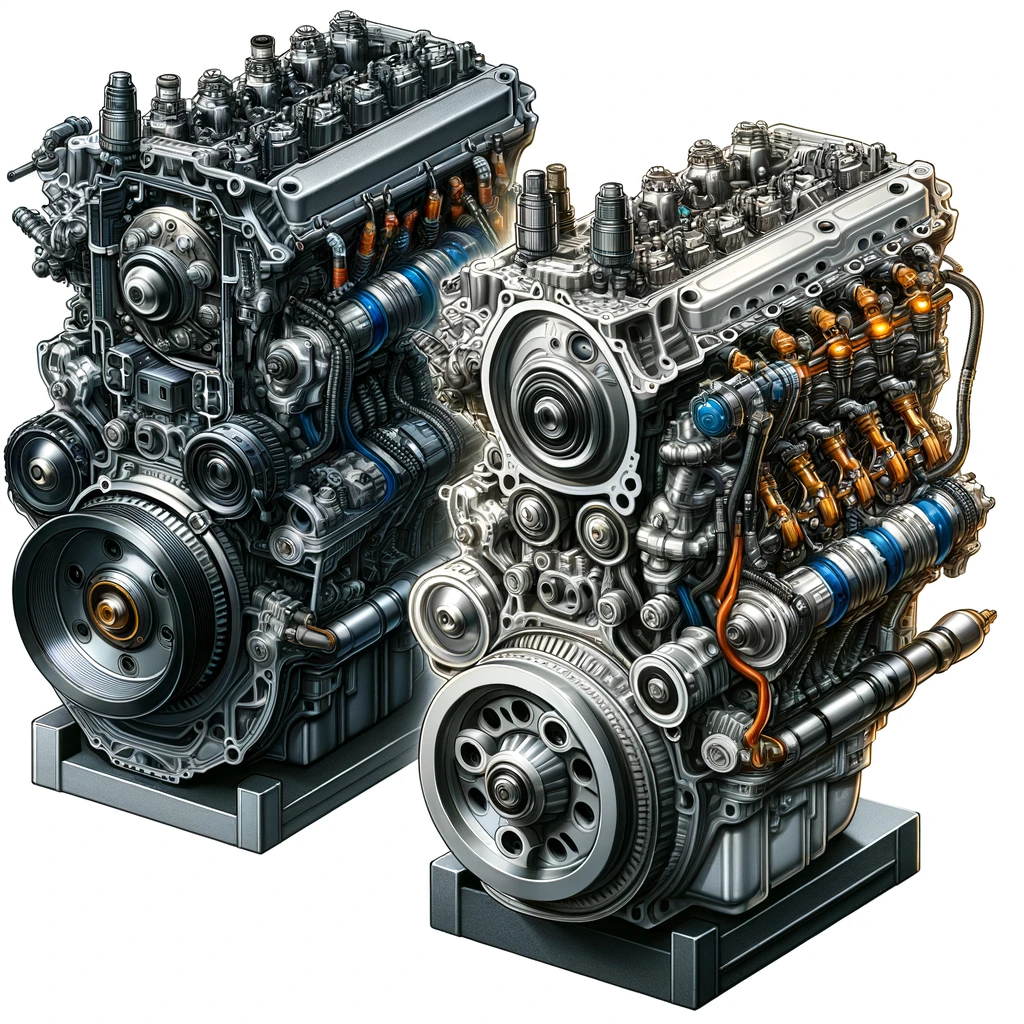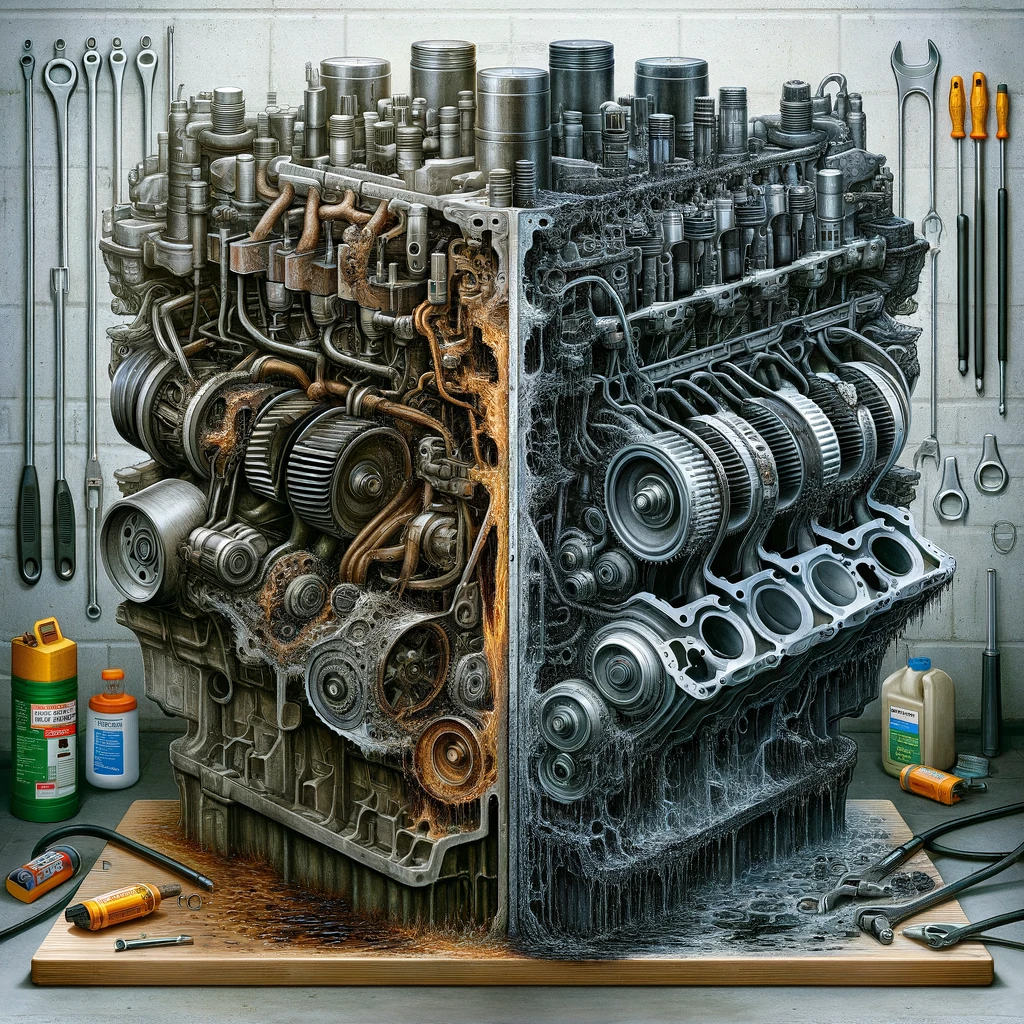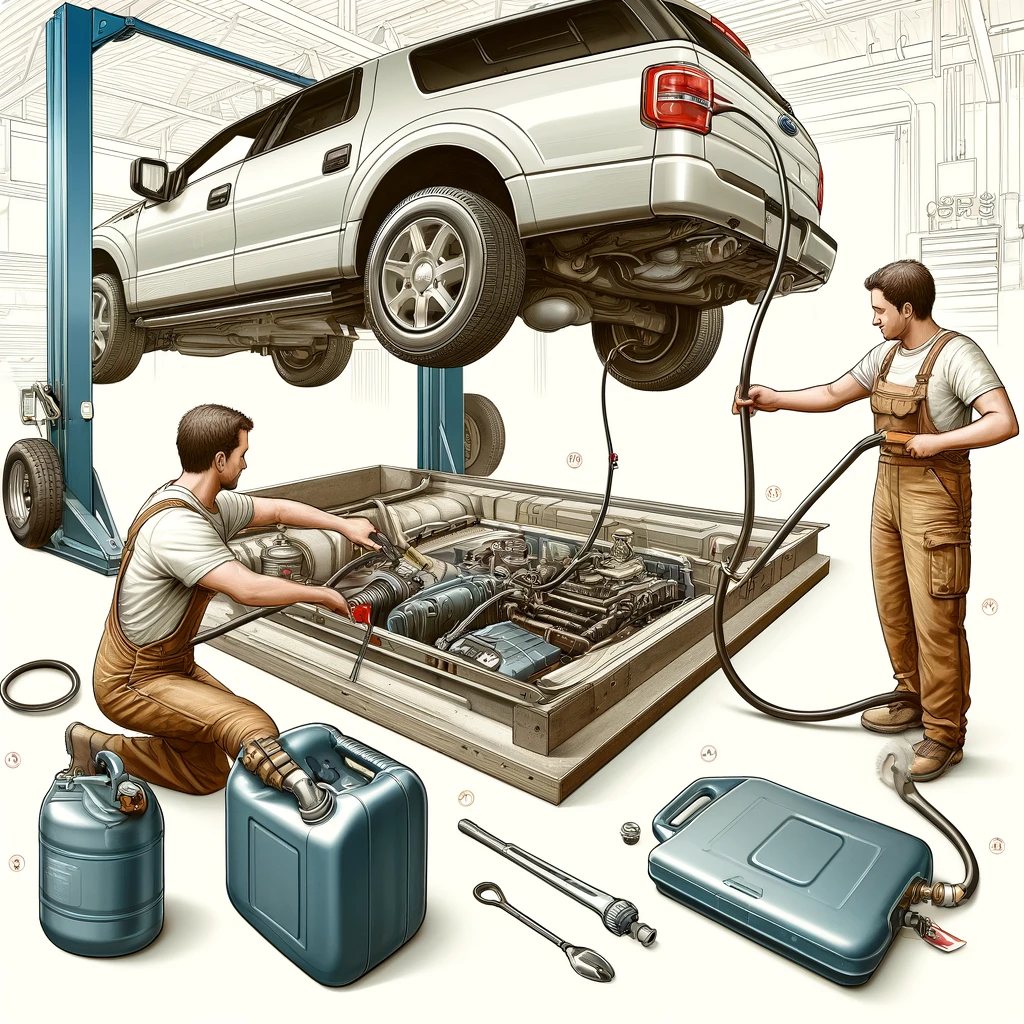
Introduction
At first glance, filling up your car might seem like one of the simplest aspects of vehicle maintenance. However, selecting the wrong type of fuel can lead to catastrophic consequences for your engine. Diesel being mistakenly put into a gasoline car is a surprisingly common error with potentially severe repercussions. This comprehensive guide explores what actually happens when diesel ends up in a gasoline engine, the immediate actions you should take, and how you can prevent such a mistake in the future.
At first glance, the seemingly straightforward task of refueling your vehicle may appear to be one of the easiest aspects of car maintenance. However, the significance of choosing the correct type of fuel cannot be overstated, as using the wrong type can result in catastrophic consequences for your engine. One particularly common yet potentially damaging mistake is the accidental introduction of diesel fuel into a gasoline-powered vehicle.
This error can have serious repercussions on the engine’s performance and longevity. To alleviate the confusion surrounding this issue, this in-depth guide delves into the specific effects of diesel fuel in a gasoline engine, outlines the immediate steps you should take if such a mishap occurs, and provides valuable insights on how to prevent this error from happening in the future.
Understanding the Differences Between Diesel and Gasoline Engines
The Basic Mechanics
Before delving into the consequences of misfueling, it’s essential to understand the fundamental differences between diesel and gasoline engines. Gasoline engines operate using a spark ignition system. This means they rely on spark plugs to ignite a mix of air and vaporized gasoline, creating the combustion needed to drive the engine. In contrast, diesel engines use compression ignition. They compress air to high pressures and temperatures, so when diesel fuel is injected, it ignites spontaneously.
Before exploring the repercussions of misfueling, it is crucial to have a clear understanding of the core distinctions between diesel and gasoline engines. Gasoline engines function through a spark ignition system, where spark plugs are essential for igniting a blend of air and vaporized gasoline, thereby initiating the combustion process necessary for powering the engine. On the other hand, diesel engines rely on compression ignition.
These engines compress air to elevated pressures and temperatures, ensuring that when diesel fuel is introduced, it auto-ignites, thereby propelling the engine forward. This stark contrast in ignition mechanisms fundamentally shapes the operational dynamics of each engine type, highlighting the critical importance of using the correct fuel for optimal performance and longevity.
Why Diesel in a Gasoline Engine Causes Problems
When diesel fuel is mistakenly put into a gasoline engine, the engine’s spark plugs cannot ignite the diesel due to its higher flash point. This results in unburned fuel entering the exhaust system, which can lead to a range of problems, including engine misfiring, reduced power, and excessive smoke production. The thicker, oilier diesel can also clog the fuel injectors and filters, further degrading engine performance.
When diesel fuel is mistakenly pumped into a gasoline engine, a critical mismatch occurs between the fuel type and the engine’s requirements. Unlike gasoline, diesel has a higher flash point, making it resistant to ignition from the engine’s spark plugs. Consequently, the engine struggles to burn the diesel efficiently, leading to the release of unburned fuel into the exhaust system. This situation can trigger a cascade of detrimental effects on the engine’s performance and longevity.
The presence of unburned diesel in the exhaust system often results in engine misfiring, a noticeable decrease in power output, and a significant increase in smoke emission. These symptoms not only indicate immediate performance issues but also hint at potential long-term damage to the engine if the problem is not promptly addressed.
Moreover, the thicker and oilier nature of diesel fuel compared to gasoline poses additional challenges when introduced into a gasoline engine. The properties of diesel fuel can lead to the clogging of the engine’s fuel injectors and filters over time. These components, crucial for delivering the correct fuel-air mixture to the engine, can become compromised by the presence of diesel, further exacerbating engine performance issues. Ultimately, the combination of inefficient combustion, engine misfiring, and fuel system clogging can culminate in severe damage and costly repairs if the misfueling mistake is not rectified in a timely manner.
What Actually Happens When Diesel is in a Gas Engine

Immediate Engine Response
Upon starting a gasoline engine that has been filled with diesel, you may notice that the engine runs roughly or doesn’t start at all. Those who do manage to start their engine might hear unusual noises, experience power loss, or see an increase in exhaust smoke, which tends to be much thicker and darker than usual.
When attempting to start a gasoline engine filled with diesel fuel, the initial signs of a misfueling mishap become apparent through the engine’s rough operation or failure to start altogether. For those individuals who succeed in starting the engine under these circumstances, they may observe the emergence of abnormal noises emanating from the engine bay, coupled with a noticeable decrease in power output.
Moreover, the exhaust emissions produced in such instances tend to be notably denser and darker in appearance compared to the typical exhaust output of a correctly fueled engine. This thick, dark exhaust smoke serves as a visual indicator of the mismatch between the engine’s design specifications and the fuel it is currently utilizing, highlighting the potential adverse effects of misfueling on the engine’s performance and overall functionality.
Short-Term and Long-Term Engine Damage
In the short term, the presence of diesel can lead to a buildup of carbon deposits within the engine as unburned fuel burns incompletely. Over time, these deposits can harm engine components such as the spark plugs and catalytic converter. Long-term exposure to diesel can lead to more severe issues, such as damage to the fuel injectors and pump, as diesel acts as a solvent, removing lubrication and increasing the wear and tear on these components.
In the short term, the incorporation of diesel fuel into an engine system can potentially result in the accumulation of carbon deposits due to the incomplete combustion of fuel. These deposits have the capacity to adversely affect critical engine parts like spark plugs and catalytic converters, impeding their optimal functionality.
As time progresses, the detrimental impact of diesel on engine elements intensifies, potentially causing significant damage to essential components such as fuel injectors and pumps. Diesel, known for its solvent properties, gradually erodes the protective lubrication on these components, thereby exacerbating their susceptibility to wear and tear over an extended period of exposure.
Immediate Steps to Take if You Misfuel Your Car
- Do Not Start the Engine: If you realize the mistake before starting the car, do not turn on the ignition. Starting the engine will circulate the diesel through the gasoline engine, compounding the problems. If you happen to realize the error prior to starting your vehicle, it is crucial that you refrain from turning the ignition key. Activating the engine in this scenario would prompt the diesel fuel to course through the gasoline-driven system, exacerbating the issue at hand and potentially causing further complications.
- Get Professional Help: The safest and most effective way to deal with diesel in a gasoline car is to have it towed to a service station. Professional mechanics can drain the tank and flush the fuel system, minimizing potential damage. Opting for the safest and most efficient course of action involves arranging for the car to be towed to a reputable service center. Seasoned mechanics possess the necessary skills to promptly empty the tank and carry out a thorough fuel system flush, which serves to mitigate any potential harm that might have arisen from the misfueling mishap.
- Insurance Check: In some cases, insurance may cover some of the costs associated with misfueling, especially if it leads to significant engine damage. It’s worth checking your policy to see if you have coverage for this kind of incident. It is pertinent to note that certain insurance policies may offer coverage for the expenses incurred as a result of misfuelling incidents, particularly if substantial engine damage ensues. Thus, it is advisable to review the specifics of your insurance plan to ascertain whether provisions are in place to assist in such circumstances.
How to Safely Remove Diesel from a Gasoline Engine
Draining the Fuel Tank

The primary and most crucial step in this procedure is to thoroughly drain all traces of diesel fuel from the tank. This essential process typically requires the removal of the tank in its entirety to facilitate a comprehensive cleaning that guarantees the complete elimination of any lingering diesel residue. By meticulously emptying the fuel tank and performing a meticulous cleansing, the assurance of a totally diesel-free environment within the tank is achieved, thereby securing the necessary conditions for continued optimal functioning.
Cleaning and Replacing Components
After draining the tank to remove any contaminated fuel, it is crucial to address the potential issues that may have arisen. One of the key steps is the replacement of the fuel filter, as it is susceptible to becoming obstructed by residual diesel particles. Alongside this, thorough flushing of the fuel lines is essential to ensure the removal of any remaining debris.
Additionally, a comprehensive cleaning of the injectors is recommended to maintain optimal fuel efficiency and engine performance. In instances where the contamination has caused significant damage, more extensive measures may be necessary. This could involve replacing the fuel pump or injectors to restore the proper functioning of the vehicle’s fuel system and prevent further complications. Regular maintenance and prompt attention to fuel contamination issues are imperative in preserving the longevity and reliability of the vehicle’s engine.
Prevention Tips: Avoiding Misfueling
- Always Double-Check: It is of paramount importance to make it a well-ingrained habit to double-check the fuel grade indicator on the pump before proceeding to fill up your vehicle. This seemingly mundane yet crucial act can serve as a proactive measure in avoiding potentially troublesome situations as well as unnecessary expenses that may arise from using the wrong type of fuel. By taking a moment to verify the fuel grade indicated on the pump, you can significantly reduce the likelihood of misfuelling your vehicle.
- Use Misfuel Prevention Devices: A recommended practice to further enhance the safeguarding of your vehicle’s fuel system is to consider utilizing misfuel prevention devices. These specialized devices are designed to be easily fitted to your vehicle’s fuel tank filler neck, acting as a protective barrier against accidental misfuelling. Specifically created to prevent the wider diesel nozzle from fitting into a gasoline tank, these devices offer an additional layer of defense to ensure that only the correct type of fuel can be dispensed into your vehicle.
- Educate Everyone Who Uses the Vehicle: In addition to implementing physical safeguards, it is equally essential to prioritize education regarding the correct fuel type your vehicle requires. It is imperative to ensure that every individual who operates your vehicle is thoroughly informed about the specific fuel type it necessitates, particularly if they are accustomed to driving a different vehicle that may utilize an alternative type of fuel. By taking the time to educate all potential drivers, you can mitigate the risk of inadvertent misfuelling incidents and promote responsible fueling practices across all users of the vehicle.
For more information, visit https://www.carmula.com/





 Who We Are
Who We Are Coverage Area
Coverage Area Donate
Donate